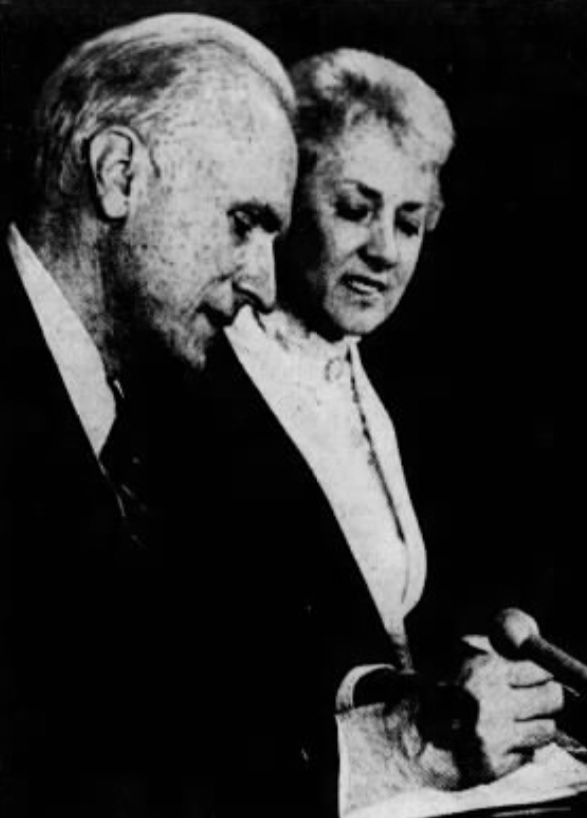American Booksellers Association, Inc. v. Hudnut was an action brought against the City of Indianapolis, challenging the constitutionality of the Anti-Pornography Ordinance of 1984. The Indianapolis ordinance prohibited “all discriminatory practices of sexual subordination or inequality through pornography.” It was significant as the only ordinance of its kind passed into law in a U.S. city. Based upon a similar ordinance passed in Minneapolis, Minnesota, but vetoed by that city’s mayor, the ordinance was a widely publicized attempt to define pornography as the sexually explicit subordination of women and thus a discriminatory practice subject to regulation by the Equal Opportunity Advisory Board.

The 1970s witnessed an increase in adult bookstores throughout many metropolitan cities, including Indianapolis. In response, the City-County Council passed ordinances and zoning laws in attempts to push out these businesses and prohibit sales of pornographic material. Reverend , pastor of the Indianapolis Baptist Temple, served as a prominent spokesman for citizens morally outraged over materials they considered obscene and inappropriate. By the early 1980s, adult businesses were prevalent in suburban areas outside of downtown. Angry community members frequently wrote Mayor , concerned over potential drops in property value as well as moral degradation and crime in the neighborhood.
Proposed by nationally prominent feminists Andrea Dworkin and Catharine MacKinnon, neither from Indianapolis, and supported by Hudnut, the language of the Indianapolis ordinance defined pornography as the subordination of women. City-County Councilwoman Beulah Coughenour offered to sponsor it. A Republican known for her opposition to the , Coughenour joined forces with MacKinnon, which in most contexts would have been a most unlikely alliance. With the help of Indianapolis attorney Deborah Daniels, the women drafted an ordinance that mimicked the previous attempted legislation in Minneapolis. The legislation outlawed any distribution of pornography on the grounds of sexual discrimination. It permitted women, and others, to file complaints to the equal opportunity advisory board based upon discriminatory acts of pornography.
The ordinance was also supported by several fundamentalist and evangelical Christian ministers who appeared at council hearings with dozens of members of their congregations to testify in favor of passage. A certain irony to that support was duly noted in news coverage of the proceedings: the alliance of so-called radical feminists with the religious right was considered a marriage of convenience, and it was widely assumed that the two groups were intent upon advancing quite different agendas. These complaints could then turn into civil lawsuits against distributors.
Despite the ordinance’s feminist language, it received no support from local feminists. Janice Kreuscher and Sheila Seuss Kennedy were among those who vocalized opposition, citing it as an infringement upon First Amendment rights. Groups like the worried that such legislation risked censorship of sexual education and feminist publications. The and several other civil rights organizations opposed the ordinance on the grounds that it was a perversion of the mission of the city’s Equal Opportunity Advisory Board as well as a threat to First Amendment freedoms.
The ordinance was signed into law on June 15, 1984, and the suit was immediately filed on behalf of a large group of plaintiffs, including the American Booksellers Association, Inc., the Association for American Publishers, Inc., the Council for Periodical Distributors, Inc., and the Freedom to Read Foundation. The American Civil Liberties Union and its Indiana affiliate filed an amicus brief supporting the plaintiffs.
On November 19, 1984, Judge Sarah Evans Barker of the United States District Court for the Southern District of Indiana permanently enjoined enforcement of the ordinance and declared it unconstitutional. Judge Barker expressly rejected the contention by proponents of the ordinance that the production, dissemination, and use of sexually explicit works and pictures constituted subordination of women and thus should be considered conduct rather than speech. Instead, the Court agreed with plaintiffs that the First Amendment to the U.S. Constitution prohibited efforts to suppress speech even when the speech was alleged to cause a social evil. The Court also found the ordinance unconstitutionally vague.
The City of Indianapolis appealed the adverse judgment to the Seventh Circuit Court of Appeals, which affirmed the District Court’s decision on August 27, 1985. The city persisted, appealing the Seventh Circuit decision to the U.S. Supreme Court. On February 24, 1986, the Supreme Court, without opinion, unanimously affirmed the lower courts, effectively concluding the debate with respect to the Indianapolis ordinance. The case has been widely cited, and copies of the opinions of the District Court and the Court of Appeals are found in numerous textbooks on constitutional law.
Attempts to outlaw pornography continued into the late 1980s, resembling efforts of those enacted prior to the 1984 ordinance, such as zoning and policing of businesses. Modern-day opponents of pornography take a more educational approach to teach about the perceived dangers of pornography through organizations such as the Indiana Coalition to End Sexual Assault (ICESA).
FURTHER READING
- American Booksellers Association, Inc. v. Hudnut, 771 F.2d 323 (7th Cir. 1985). https://law.justia.com/cases/federal/appellate-courts/F2/771/323/379919/.
CITE THIS ENTRY
APA:
Kennedy, S. S. & Fox, J. (2021). American Booksellers Association, Inc. v. Hudnut. Encyclopedia of Indianapolis. Retrieved Feb 17, 2026, from https://indyencyclopedia.org/american-booksellers-association-inc-v-hudnut/.
MLA:
Kennedy, Sheila Seuss and Jonnie Fox. “American Booksellers Association, Inc. v. Hudnut.” Encyclopedia of Indianapolis, 2021, https://indyencyclopedia.org/american-booksellers-association-inc-v-hudnut/. Accessed 17 Feb 2026.
Chicago:
Kennedy, Sheila Seuss and Jonnie Fox. “American Booksellers Association, Inc. v. Hudnut.” Encyclopedia of Indianapolis, 2021. Accessed Feb 17, 2026. https://indyencyclopedia.org/american-booksellers-association-inc-v-hudnut/.

Help improve this entry
Contribute information, offer corrections, suggest images.
You can also recommend new entries related to this topic.